 Petzlover
Petzlover Bantam Bulldog is originated from United Kingdom but Latvian Hound is originated from Russia. Bantam Bulldog may grow 12 cm / 4 inches shorter than Latvian Hound. Both Bantam Bulldog and Latvian Hound are of same weight. Both Bantam Bulldog and Latvian Hound has same life span. Bantam Bulldog may have less litter size than Latvian Hound. Both Bantam Bulldog and Latvian Hound requires Low Maintenance.
Bantam Bulldog is originated from United Kingdom but Latvian Hound is originated from Russia. Bantam Bulldog may grow 12 cm / 4 inches shorter than Latvian Hound. Both Bantam Bulldog and Latvian Hound are of same weight. Both Bantam Bulldog and Latvian Hound has same life span. Bantam Bulldog may have less litter size than Latvian Hound. Both Bantam Bulldog and Latvian Hound requires Low Maintenance.
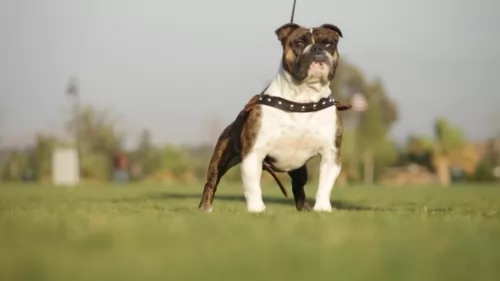 The origin of the Bantam Bulldog goes back to the 1800s, and in fact there is evidence of miniature bull dogs in 1899, In 1902 the smaller bulldog breed was facing extinction, so that it became necessary to import French bulldogs to England to help restore the bantam bulldog breed.
The origin of the Bantam Bulldog goes back to the 1800s, and in fact there is evidence of miniature bull dogs in 1899, In 1902 the smaller bulldog breed was facing extinction, so that it became necessary to import French bulldogs to England to help restore the bantam bulldog breed.
It was only in 2002 that the United Canine Association recognized the English bantam bulldog.
They’re the same as the ordinary bulldog except they are lighter and shorter, although there are slightly larger ones which are as tall as a regular bulldog.
The Bantam bulldogge is related to the English and French bulldogs so that the standards for the bantam breed has similarities to both types.
 The Latvian Hound is a medium sized Russian or Latvian hunting hound. The dog was bred in Latvia, Russia.
The Latvian Hound is a medium sized Russian or Latvian hunting hound. The dog was bred in Latvia, Russia.
He was developed from a number of English and Polish dogs as well as Lucernese breeds.
It is by no means a new breed and records of it go way back to the 1600s. A certain Duke Courland developed the dog so that it was also known as the Courland Hound. In 1922 the Latvian Association of Hunters' Associations was formed.
It was in 1971 that the Latvian Hound was was approved with it's name and a new standard was developed and approved. It isn't recognized by the AKC or the FCI.
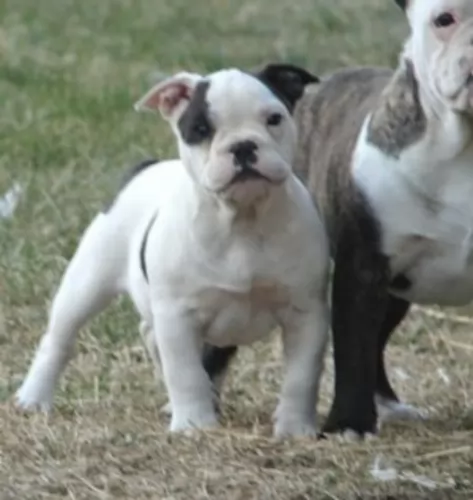 The breed has its origins with the English bulldog, but it was in 2011 that the ‘English’ was abandoned and the name of the dog changed to Bantam Bulldogge. Short to medium in height, and with his large, square head and broad, short muzzle, the dog is short, strong, stout and compact. He had wide apart eyes, short, half-pricked, half-floppy ears and the front legs are also strong and set wide apart.
The breed has its origins with the English bulldog, but it was in 2011 that the ‘English’ was abandoned and the name of the dog changed to Bantam Bulldogge. Short to medium in height, and with his large, square head and broad, short muzzle, the dog is short, strong, stout and compact. He had wide apart eyes, short, half-pricked, half-floppy ears and the front legs are also strong and set wide apart.
He is fit and active with a playful, jovial personality. The Bantam Bulldog is completely at ease with his human family and welcomes visitors to the home. He forms strong bonds with everyone in the family and loves the presence of children in the home too. As with most other dog breeds, he does well with training and socialization – it just makes him a better dog all round. He doesn’t have a problem with accepting other pets in the home.
The coat of the Bantam is short, dense and straight with the skin being tight to the body but looser around the head and neck. Both head and face have moderate wrinkles. The coat is available in all colors and is low maintenance. A good brush twice a week won’t only remove loose hairs and keep his short coat glossy, the mere act of brushing him strengthens the bond between you as well.
 The Latvian Hound is a medium sized dog standing at between 40 to 48cm in height and weighing about 15 to 20kg.
The Latvian Hound is a medium sized dog standing at between 40 to 48cm in height and weighing about 15 to 20kg.
He has a deep chest, fairly long, floppy ears, a long tail with strong legs. The coat is double and is short, shiny and dense. He is an average shedder. He is essentially black with tan markings, with tan spots above the eyes. The eyes are dark brown and the nose is black.
The Latvian Hound may well be an exceptional hunter but he also makes a great family pet. He is looked upon as being a friendly, amicable, sweet dog.
Because he has been a working dog, he likes to be busy and will happily join in with all your hikes and swimming. He will also run with you while you cycle.
It’s a dog that doesn’t like to be left alone for long periods of time, being inclined to suffer with separation anxiety. He doesn’t take kindly to strangers either, but a dog which has been socialized and trained becomes more amicable.
Your Latvian is intelligent so you won’t have any trouble teaching him some simply commands. He is a friendly, lively dog and just having him in your home brings in a joyous atmosphere. He is an easy-going dog, but even so, if you don’t have a fair sized garden and you don’t have the time to exercise him, he is better off living on a farm or where there is a fair sized garden.
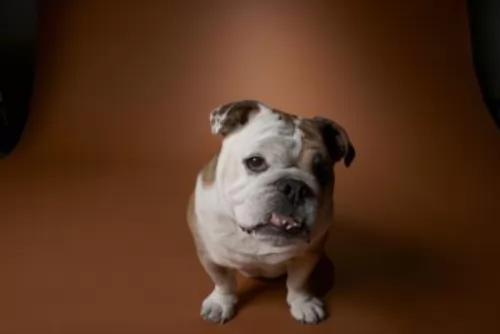 The Bantam Bulldog is full of personality and is active, friendly and social. He is an adaptable pet and will happily live with his human family in an apartment or in a home with a garden. Patient and tolerant, he responds well to the voice of his owner and simple commands are no problem with him as he is quick to learn and to please.
The Bantam Bulldog is full of personality and is active, friendly and social. He is an adaptable pet and will happily live with his human family in an apartment or in a home with a garden. Patient and tolerant, he responds well to the voice of his owner and simple commands are no problem with him as he is quick to learn and to please.
He is never going to be much of a guard dog for you, but he will be a happy, contented, loyal and devoted companion who just wants to be as close to you as he can.
 The Latvian Hound is an outgoing, fun dog to have around and a great dog for first-time dog owners too. He has always been a working dog, so he has developed skills such as being focused and tenacious.
The Latvian Hound is an outgoing, fun dog to have around and a great dog for first-time dog owners too. He has always been a working dog, so he has developed skills such as being focused and tenacious.
As a companion and family dog, you will have a true friend as he is sweet, loving and loyal and thrives on the attention of his human family. He is a playful dog, feisty and energetic, and will be protective too. Bring him into your home and you'll see what a bright place it becomes just having him there as pet and friend.
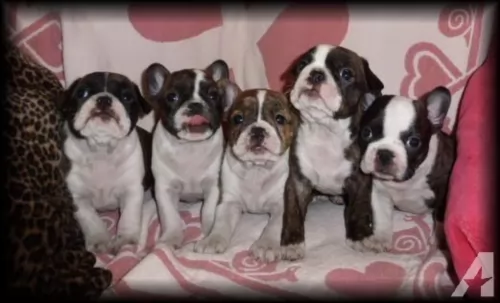 A happy dog is a healthy dog, but the happy Bantam Bulldog will be prone to certain ailments that are common to his breed
A happy dog is a healthy dog, but the happy Bantam Bulldog will be prone to certain ailments that are common to his breed
This breed of dog is prone to have hip dysplasia. Because of their genetic make-up, the soft tissues surrounding the joint develop abnormally and the disease can affect one- or both hips.
Bulldogs can also be prone to digestion issues which amounts to flatulence. This problem however, can be reduced significantly by giving your pet the best diet. Speak to your vet about appropriate foods for dogs with a sensitive stomach. With a sensitive stomach, you want to avoid dog foods with toxic colorants, artificial preservatives and artificial flavors.
Be aware of breathing problems with your bantam bulldog because flat-faced dog breeds such as this can battle with upper airway problems. Symptoms of an obstructed upper airway can include noisy breathing, panting, snoring, rapid breathing and coughing.
 The life span of the Latvian Hound is 12 to 14 years, and while there are no reported major health issues, all dogs face some kind of medical issues during their lives. The Latvian Hound can face things like hip dysplasia, eye problems, bloat and ear infections.
The life span of the Latvian Hound is 12 to 14 years, and while there are no reported major health issues, all dogs face some kind of medical issues during their lives. The Latvian Hound can face things like hip dysplasia, eye problems, bloat and ear infections.
Vaccines can protect your dog from contracting some illnesses which can be fatal.
There is controversy over pet vaccines but the problem is more about HOW the dog is vaccinated.
There was a time when puppies were vaccinated many times, but newer guidelines were updated in 2017, stating that core vaccines be given to adult dogs in intervals of 3 years or more, rather than every year.
Puppy vaccines still need to be done about every 3 weeks between the ages of 6 and 16 weeks against the likes of parvovirus and distemper. Get yourself a good vet who is skilled and safe with vaccines.
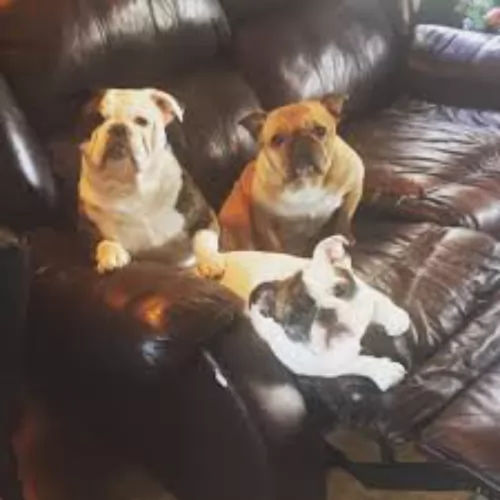 Your Bantam Bulldog needs a lot of protein in his diet. In fact, the Association of American Feed Control Officials have suggested that the dog needs at least 22% of maintenance protein for puppies and 18% of protein for adult dogs. Speak to your vet about wet- and dry dog foods and which foods will suit this particular pet of yours. Always ensure cool, fresh water is within your pet’s reach.
Your Bantam Bulldog needs a lot of protein in his diet. In fact, the Association of American Feed Control Officials have suggested that the dog needs at least 22% of maintenance protein for puppies and 18% of protein for adult dogs. Speak to your vet about wet- and dry dog foods and which foods will suit this particular pet of yours. Always ensure cool, fresh water is within your pet’s reach.
The exercise needs of the Bantam Bulldog are minimal. He is never going to turn down a game of ball with the kids but you don’t have to take him on long walks or runs. He is a social pet, so even though you don’t have to be putting him through an exercise program every day, he doesn’t want to be left alone hour after hour, day after day.
 The Latvian Hound has a short coat that is easy to groom. He is a moderate shedder and brushing him twice a week will take care of all that loose hair. He’ll thrive on the attention this grooming session gives him and its the time to check him over for ticks and fleas too.
The Latvian Hound has a short coat that is easy to groom. He is a moderate shedder and brushing him twice a week will take care of all that loose hair. He’ll thrive on the attention this grooming session gives him and its the time to check him over for ticks and fleas too.
Check the inside of his ears. Without even realizing it, dirt and wax can build up and result in an ear infection. His ear may be red and you’ll notice him shaking his head and scratching at his ears. Be very careful about cleaning his ears as going to deep can damage the ear.
Any grooming of your dog that you can’t manage can be attended to by professional dog groomers.